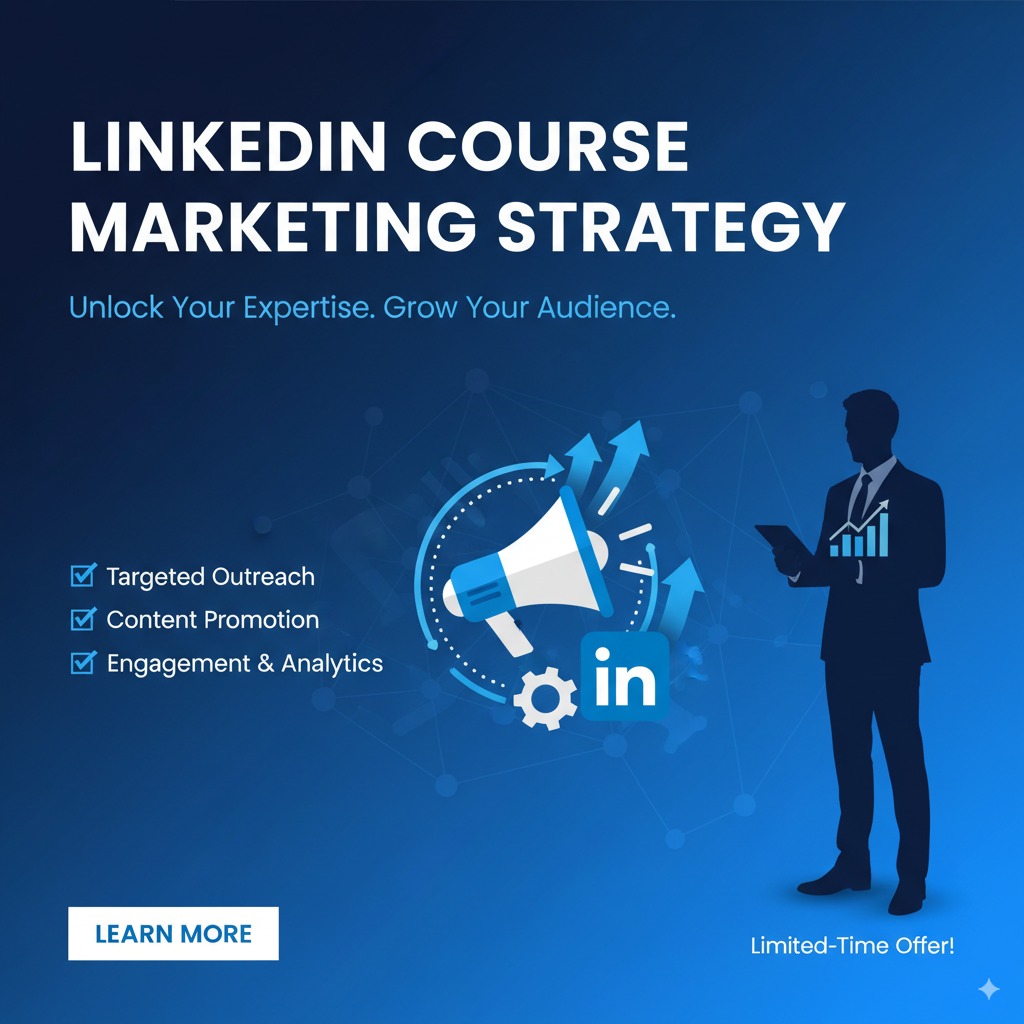LinkedIn isn’t just for job hunting—it’s a powerful platform for educators and creators to build authority, nurture a professional audience, and sell online courses. With over 1 billion users, your ideal students are already there. Here’s how to leverage LinkedIn effectively.
1. Optimize Your Profile for Authority & Trust
Your profile is your digital storefront. Before you pitch, you must build credibility.
- Headline: Go beyond your job title. Include your niche and who you help.
- Weak: Online Course Creator
- Strong: Helping Educators Design Profitable Online Courses | Course Creation Strategist
- About Section: Craft a compelling story. State the problem your audience faces, your solution (your expertise/courses), and a clear call-to-action (e.g., “Visit my website to explore my courses”).
- Featured Section: Showcase your best work! Add links to your lead magnet, course landing page, webinar, and samples of your content.
- Creator Mode: Turn this on to amplify your reach. It adds a “Follow” button and allows you to display 5 relevant hashtags (e.g., #OnlineLearning, #EdTech, #CourseCreator) on your profile.
2. Develop a Value-First Content Strategy
Stop selling outright. Start educating. Your content should provide so much value that your course becomes the logical next step.
- The 80/20 Rule: 80% of your content should educate, inform, and entertain. 20% can directly promote your offerings.
- Content Formats That Convert:
- Text-based Posts: Share quick tips, insights, and stories. Ask questions to spark conversation.
- Native Video: Short, informative videos (e.g., “Tip of the Day,” behind-the-scenes) see high engagement.
- Carousels (PDFs): Perfect for step-by-step guides, frameworks, and listicles. Highly shareable.
- Articles: Publish long-form content on LinkedIn Pulse to demonstrate deep expertise and improve SEO.
- Content Pillars: Focus on 3-4 core topics related to your course. For example, if you teach digital marketing, your pillars could be SEO, Content Marketing, and Social Media Strategy.
3. Master Strategic Engagement & Networking
Visibility is built through engagement. You can’t just post and disappear.
- Engage Daily: Spend 15-20 minutes daily commenting thoughtfully on posts from influencers and potential students in your niche. Add value to the conversation.
- Join Relevant Groups: Participate in LinkedIn Groups where your target audience hangs out. Answer questions and share valuable insights without spamming.
- Use LinkedIn Search: Use filters to find your ideal client profile (e.g., “Instructional Designer,” “Marketing Manager,” “L&D Professional”) and engage with their content.
4. Convert Connections into Students
Turn engagement into a sales conversation with a strategic, non-salesy process.
- Lead Magnets: Offer a high-value freebie (e.g., checklist, webinar, mini-course) mentioned in your content. This captures emails and warms up cold traffic.
- Nurture in DMs: When someone comments on your post or downloads your lead magnet, send a personalized connection request or thank-you message. Do not pitch immediately. Start a conversation.
- Social Proof: Share testimonials, case studies, and student success stories. This builds immense trust and reduces perceived risk for new buyers.
- Clear CTAs: Every piece of content should have a soft call-to-action. “For a deeper dive, check out my full course on [Topic]—link in comments.” or “DM me the word ‘GUIDE’ for my free resource on this.”
Key Takeaway
Selling courses on LinkedIn is a marathon, not a sprint. By optimizing your profile, consistently providing value, and strategically engaging with your network, you build the know-like-trust factor that makes professionals eager to learn from you.
